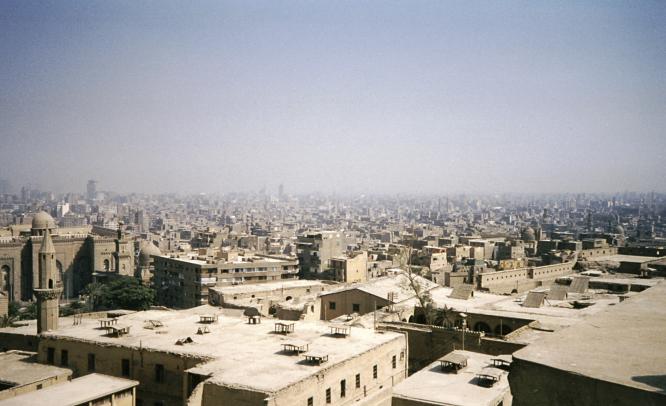President hopes it will usher in new investments; however, such plans have failed in the past
Suparna Goswami Bhattacharya
April 29, 2015: Over the past 5,000 years, Egypt has changed its capital city 29 times. The Pharaohs of Egypt often moved the capital by building new cities. But since 950 AD, the country has had a stable capital in Cairo, which houses nearly 20 million inhabitants.
But President Abdel Fattah el-Sisi is taking a cue from the Pharaohs. A millennium on, Egypt will see a new capital — a grand plan which the President thinks will attract fresh investments. The government has passed on the baton to build the new capital (currently nameless) from scratch to Mohamed Alabbar, the Emirati businessman who built Burj Khalifa in Dubai — the tallest building in the world.
The $300 billion ambitious project plans to house 21 residential districts, 663 hospitals and clinics, 1,250 mosques and churches, and 1.1 million homes housing at least five million residents. And the aim is to have the city up and running within seven years. Though some investors have welcomed the plans, there are many who argue that similar schemes have failed to succeed in Egypt in the past.
Brent Toderian, Vancouver’s former city planner, says, “The tight timeframe for planned build-out of an entire new city is a red flag that causes me some concern. It’s one of the things that makes this feel more like a land development play than a real city-building exercise.”
In fact, the government did not even consult citizens before deciding to shift the capital. “The current government is still following the top-down approach and there is no sign that they are going to change it. There is an absence of parliament and no elections are in sight,” states Hussein Hassan, an international anti-corruption and asset recovery expert.
As said previous such plans have gone awry for Egypt. The country is dotted with several ‘desert cities’. The initial plan, while building these cities, was to make it affordable for the masses but most of the developments consisted of upper class residencies and, hence, could not cope up with the demand for affordable housing. Such cities have a vacancy rate between 64% and 70% while at the same time the country faces the problem of high homelessness. These towns collectively hold a population, which is lesser than Cairo.
Though neighbouring UAE has been successful in following this approach, the fact of the matter is that Egypt is a different model and economy all together. One must take into account that Dubai is a small and rich city and the culture and ruling system is in the hands of a monarch. “Egypt is still in the phase of building and modernising its infrastructure. Since Egypt has high political instability, I do not see investors investing heavily unless they see a real robust democratic reform process in place,” rues Hassan.
To be fair, the government in Egypt has taken some commendable steps which have made the economy look much better than what it was four years ago. For instance, the decisions related to reform of subsidies for both fuel and food, the Suez Canal project, announcement of investments plans etc.
Simon Williams, chief economist, Central Europe, Middle East and Africa, HSBC, says, “The economy has been weak since the 2011 revolution, but after four difficult years, it has begun to move forward. The pre-requisite for this has been an improvement in political situation and security, which has allowed for gains in policy making. Investor interest is improving and I expect it to strengthen further into 2016.”
GDP growth in the fourth quarter of the 2013-14 fiscal year was 3.7% compared to 1.5% a year previously. The African Development Bank, in fact, supports the government’s initiative in creating a new capital. “The new capital city development is one of the mega projects to spur growth and development and create jobs. It is a new annex city attached to Cairo and so it will be to attract new investments in service industry and financial sectors and, perhaps, if the governments decides to move some or all the ministries there, it will also facilitate doing business,” says Prajesh Bhakta, chief country programme officer, African Development Bank, Egypt.
However, economic recovery remains fragile due to high inflation rate estimated at 10.1% in 2014, the country’s high outstanding public debt to GDP ratio, up to 97% in June 2014 from 94% a year previously. Even the unemployment rate has risen to 13.3% in 2013 from 9% in 2010.
According to Bhakta, though a top-down approach is not a problem, the government should also have a parallel down-top approach “to reverse the poverty path and ensure the poorest are not adversely affected by the cuts in subsidies”.
Despite this, Toderian feels that a new city should be a result of success and not a response of desperation. “New cities need to take advantage of momentum as they generally do not create momentum. I tend to prefer strengthening existing cities in sustainable growth patterns rather than trying to start from scratch on new cities with a blank sheet of paper. Having said that, with the population growth we are expecting globally, new cities will be inevitable. The key will be to put them in places that make sense, and do them for the right reasons with the right conditions for success – not because a country is desperate to kickstart some economic momentum.”
Also read:
Amid unrest, Egypt’s entrepreneurs fueling revolution of their own

